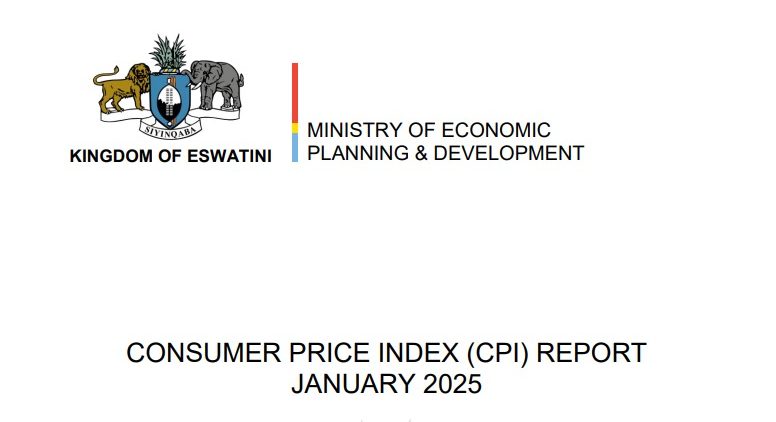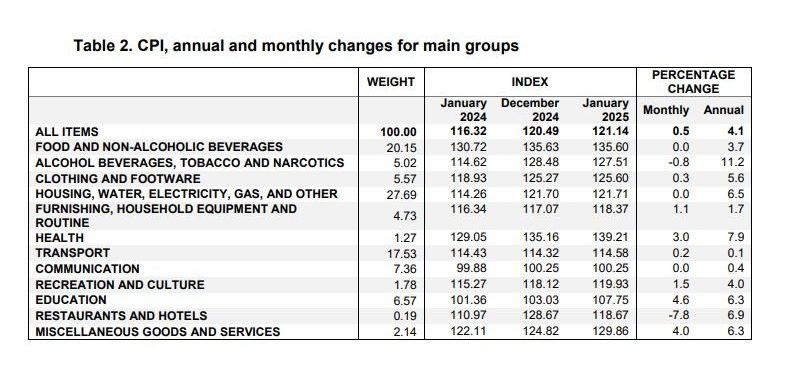
By Sizwe Dlamini
Eswatini’s headline inflation rate climbed to 4.1% in January 2025, marking an increase of 0.27 percentage points from 3.9% in December 2024. This is according to the Consumer Price Index (CPI) Report for January 2025.
This rise was primarily driven by higher costs of alcoholic beverages, tobacco, and narcotics, along with a notable surge in education fees. Despite the increase, the 4.1% inflation rate remains lower than the 4.5% recorded in January 2024, showing a 0.31 percentage point decline over the year.
In January 2025, goods inflation stood at 4.3%, while services inflation was 3.8%.
Headline inflation is a measure of the total inflation within an economy, including commodities such as food and energy prices, which tend to be much more volatile and prone to inflationary spikes. It reflects the overall change in the cost of living for consumers.
In contrast, core inflation excludes volatile food and energy prices to provide a clearer view of the underlying, long-term inflation trend. By removing these components, core inflation offers a more stable measure of inflation, helping policymakers and economists assess the economy’s true inflationary pressures.
In essence, while headline inflation gives a more immediate snapshot of the cost of living, core inflation is often used to gauge persistent inflation trends, which are less affected by short-term volatility.
Returning to the aforementioned CPI report, the Month-on-Month inflation rate—which tracks price changes between December 2024 and January 2025—rose to 0.5%, a significant jump from the 0.1% recorded in December 2024.
A major contributor to the higher inflation rate was the alcoholic beverages, tobacco, and narcotics category, which saw an increase from 3.5% in January 2024 to 11.2% in January 2025, largely due to rising prices of wine and beer.
Conversely, the miscellaneous goods and services category saw a notable decline from 13.0% in January 2024 to 6.3% in January 2025, attributed to slower price increases in personal care products, small home appliances, and financial services.
Similarly, the restaurants and hotels category decreased from 13.5% in January 2024 to 6.9% in January 2025, mainly due to slower growth in accommodation service costs.

Between December 2024 and January 2025, education costs surged from 0.0% to 4.6%, driven by rising fees in primary and secondary education.
Conversely, the restaurants and hotels category experienced a significant decline, dropping from 0.9% in December 2024 to -7.8% in January 2025, reflecting seasonal price reductions in accommodation services.
